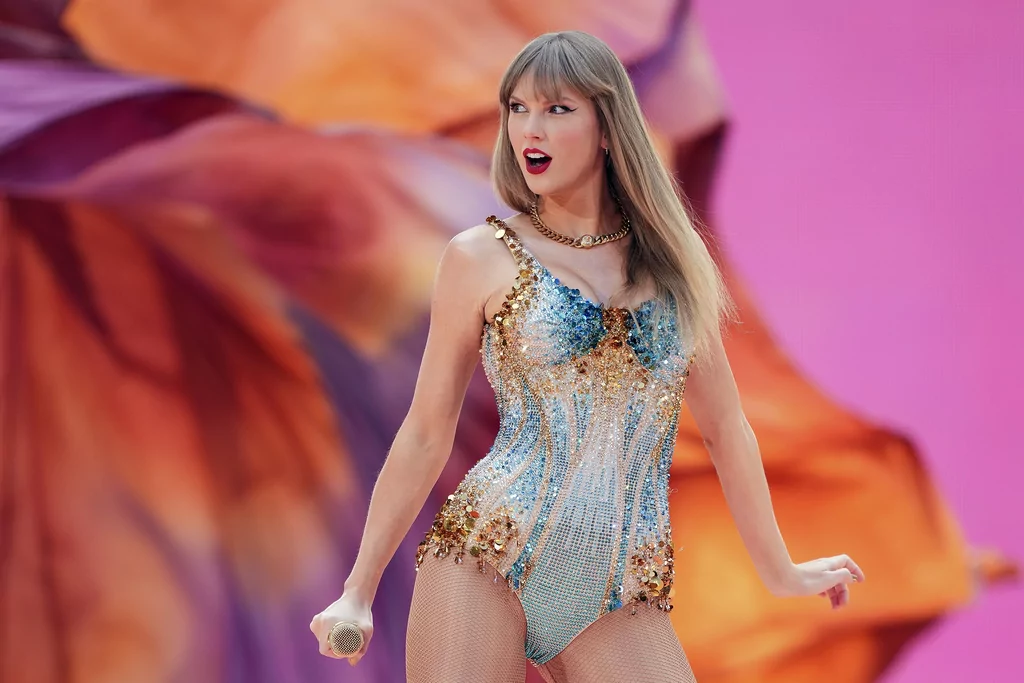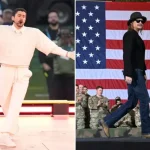

Democrats are hoping Taylor Swift encouraging people to register to vote will give Vice President Kamala Harris an edge in critical battleground states.
Swift’s encouragement, in a social media post and during her appearance at the 2024 MTV Video Music Awards, is opportune for Harris after Democrats experienced a “big deficit” in voter registration under President Joe Biden, according to election experts.
In the 24 hours after Swift shared a personal hyperlink to vote.gov, a website that provides people with information about how to register to vote, in her post-debate social media post endorsing Harris, the page received 405,999 visits, the General Services Administration, the federal agency that oversees the site, told the Washington Examiner.
The GSA also said that vote.gov received roughly 30,000 visitors a day during the week before the debate, but 726,523 the day after it.
The Harris campaign seized on the unexpected endorsement, adding Swift-style friendship bracelets to the vice president’s merchandise store. But now the Harris campaign and the Democratic National Committee are amplifying the importance of registering to vote, and the DNC’s $25 million investment in its “I Will Vote” initiative, as Republican registration rates improve across the country.
“Democrats aren’t leaving any votes on the table,” DNC spokeswoman Hannah Muldavin told the Washington Examiner. “Democrats are building a broad coalition, from Americans who turn out every cycle to those who may be voting for the first time in 2024, and with Harris-Walz at the top of the ticket, we’re ready to mobilize a record number of voters to turnout Democratic victories up and down the ballot in November.”
In states that have party registration, “we’ve seen a big deficit in Democratic registrations” so far this season, according to Charles Stewart, director of the Massachusetts Institute of Technology’s Election Data and Science Lab. In particular, Stewart cited Pennsylvania, the state whose 19 electoral votes could decide this year’s contest, and North Carolina, the state former President Donald Trump won in 2020 by his narrowest margin of victory.
“Some of this is long-term,” Stewart told the Washington Examiner. “For instance, in Pennsylvania, Republican registrations vs. Democratic registrations have been growing for two decades.”
Stewart did advise caution when comparing registration numbers, especially since Pennsylvania has been “a 50/50 state all this time.” But the professor added that a short-term consideration is that the Republican presidential primary was “somewhat competitive” in the spring whereas “it was crickets” on the Democratic side, so Republicans had “more reason to register anew than Democrats.”
“We’re beginning to see an uptick in registrations among Democrats,” he said. “Part of this is likely to be part of a Kamala bounce, but it is also probably a reflection of pent-up demand among Democrats we might have seen registering in the spring if there had been a competitive primary.”
According to Pennsylvania’s Department of State, there are currently 3,496,467 active Democratic voters in contrast to 3,327,617 active Republicans.
Elsewhere in North Carolina, Tar Heel State Republican Party spokesman Matt Mercer underscored how there was now a 128,000 voter registration difference between Democrats and Republicans in his jurisdiction.
“In 2016, that difference stood at 645,000,” Mercer told the Washington Examiner. “Simply put, there has been a historic rejection of being labeled a Democrat in North Carolina.”
Michael Hanmer, director of the University of Maryland’s Center for Democracy and Civic Engagement, agreed with Stewart in that his “sense” is that registration among young people has been “going up” since Biden suspended his campaign in July and was replaced by Harris.
“That suggests a boost for the Democrats, but young people are still in the process of finding their political identity and are more diverse in their thinking than most assume,” Hanmer told the Washington Examiner.
For Kei Kawashima-Ginsberg, Newhouse director of Tufts University’s Center for Information & Research on Civic Learning and Engagement, or CIRCLE, there are about 12.2 million voters under the age of 30 who are registered with a party, based on publicly available information.
“Of those, 6.4 million are registered Democrats and 4.2 million are registered Republicans,” Kawashima-Ginsberg told the Washington Examiner. “That said, it is important to remember that in voter registration, almost two-thirds, 62%, of youth do not identify with any party. So when we say 52% are ‘Democrats,’ we are saying that of the 38% of young registered voters who are registered with a specific party, 52% are affiliated with Democrats.”
The effect of Swift on voter registration and her endorsement of Harris more broadly remains to be seen, at least according to Stewart.
“The academic evidence seems to indicate that celebrities don’t have an influence on voter behavior, with the possible exception of athletes,” he said. “Unless Taylor and Travis [Kelce, Swift’s Kansas City Chiefs boyfriend] trade uniforms, I don’t think it’s going to make a difference.”
Regardless, Rice University political science professor Robert Stein noted Democrats need to be more organized since their voters tend to live in urban areas and are “highly mobile,” for example, if they rent and “move around.”
“There’s a big question mark about whether new registrants are likely to vote,” Stein told the Washington Examiner. “There’s evidence, research that shows that the closer you register to Election Day, the more likely you are to vote.”
“Will they all vote? I don’t think so. Will half of them vote? I’d be surprised. Will a third of them vote? That third could be what it was in Wisconsin,” he said. “President Trump won Wisconsin in 2016 by 15,000 votes and lost it in 2020 by 21,000 votes.”
CLICK HERE TO READ MORE FROM THE WASHINGTON EXAMINER
Days after signing off her Instagram post as a “childless cat lady,” a dig at Republican vice presidential nominee Sen. J.D. Vance (R-OH), Swift implored people to register to vote during her acceptance speech for best video of the year in New York.
“If you are over 18, please register to vote for something else that’s very important coming up,” she said.




